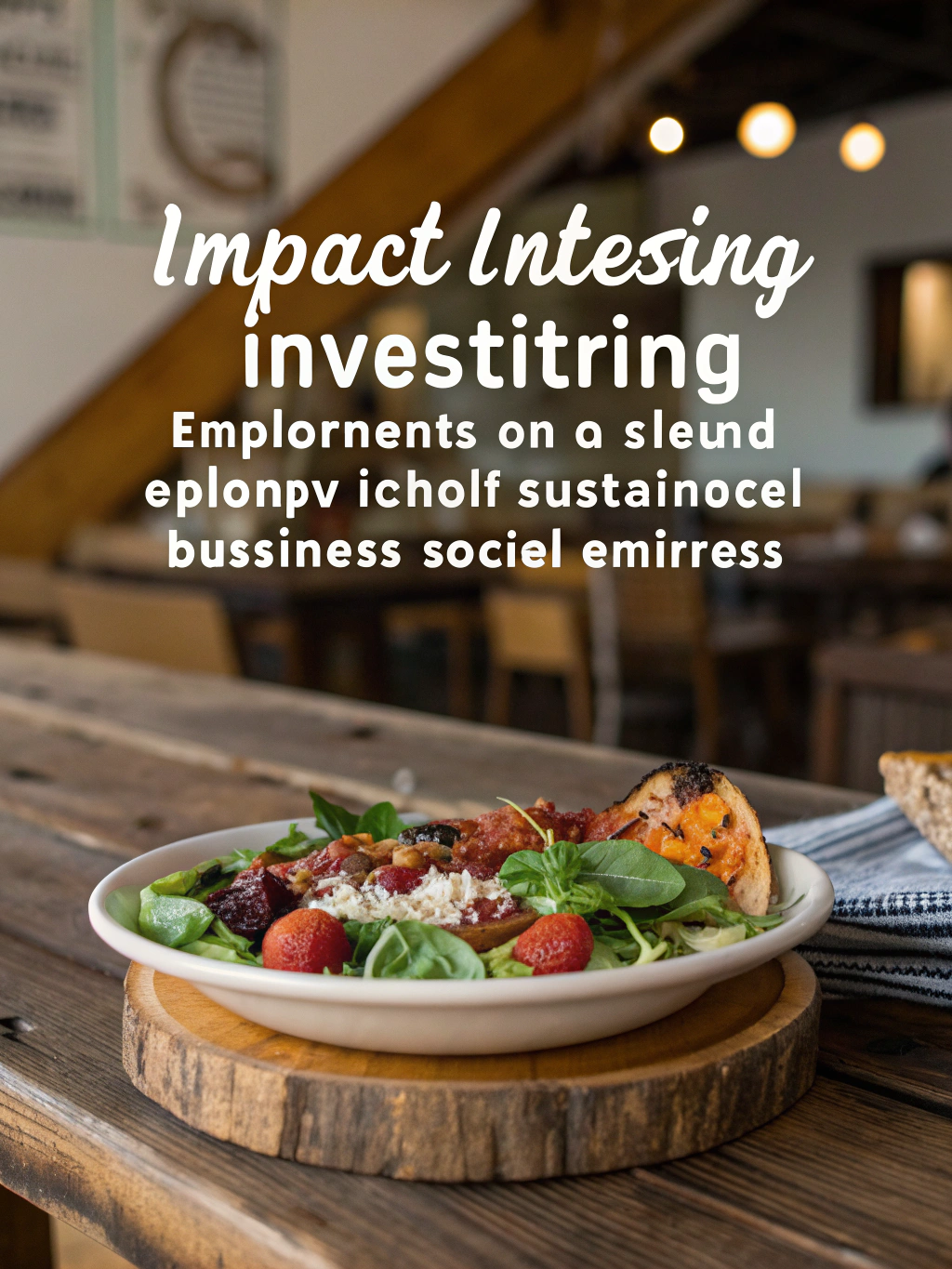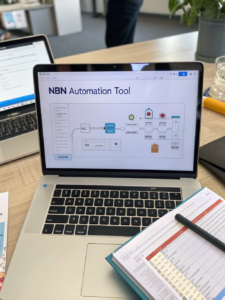Investing for Good: The Rise of Impact Investing in Social Enterprises
The Future is Now: Investing in a Better World with Impact Investing The world is changing, and so is the way we invest. More and more investors are looking beyond traditional financial returns and seeking opportunities that generate positive social and environmental change. This shift has fueled the growth of impact investing social enterprise, a powerful strategy for building wealth while addressing critical global challenges. But what exactly is impact investing, how does it work, and why is it becoming so prominent in the current economic landscape? This article delves into the world of impact investing, exploring its key drivers, emerging trends, and potential for long-term success. Understanding Impact Investing and ESG Impact investing isn’t charity. It's a strategic approach to allocating capital to companies, organizations, and funds with the intention of generating measurable, positive social and environmental impact alongside financial return. Unlike traditional philanthropy, impact investing seeks to create a self-sustaining cycle of positive change. This involves actively seeking out companies with demonstrated commitment to addressing issues like climate change, poverty, inequality, and lack of access to education and healthcare. A crucial component of impact investing is ESG investing, which stands for Environmental, Social, and Governance. ESG investing considers these three pillars alongside financial metrics when making investment decisions. Investors looking to boost their returns are increasingly aware that businesses with strong ESG investing practices are often better positioned for long-term success. These companies tend to be more resilient, innovative, and better equipped to handle evolving societal expectations and regulatory pressures. Here's a quick breakdown of ESG factors: Environmental: Focuses on a company's impact on the planet – carbon emissions, resource depletion, waste management, and pollution. Social: Examines a company's relationships with its employees, customers, suppliers, and the communities in which it operates – labor standards, human rights, diversity & inclusion, and community development. Governance: Assesses a company's leadership, executive compensation, audit practices, and shareholder rights – transparency, accountability, and ethical business conduct. The Rise of AI-Powered Impact Investing Artificial intelligence (AI) is revolutionizing many industries, and impact investing is no exception. AI agents and automation are playing an increasingly crucial role in identifying, assessing, and managing impact investments. AI can sift through vast amounts of data – from news articles and social media feeds to financial reports and environmental impact assessments – to uncover hidden opportunities and assess the social and environmental performance of potential investments. Here's how AI is reshaping the landscape: Data Analysis: AI algorithms can analyze complex datasets to identify trends, predict risks, and assess the potential impact of investments. Due Diligence: AI-powered tools automate parts of the due diligence process, helping investors quickly evaluate potential investments based on ESG criteria. Portfolio Management: AI can optimize investment portfolios to maximize both financial returns and social impact. Impact Measurement: AI facilitates the measurement and reporting of social and environmental impact, providing investors with more transparency and accountability. The integration of AI into impact investing isn't just about efficiency; it’s about unlocking new avenues for positive change. For instance, AI can help identify social enterprises operating in underserved communities, or flag companies with hidden environmental risks. Investing in impact investing social enterprise is bolstered by these advances. Alternative Investments and the Future of Impact Impact investing is expanding beyond traditional asset classes like stocks and bonds to encompass a broader range of alternative investments. This includes private equity funds focused on social ventures, real estate projects with a social purpose (e.g., affordable housing), and investments in renewable energy and sustainable agriculture. These alternative avenues allow investors to directly support innovative solutions to pressing social and environmental challenges. Here are some examples of alternative impact investments: Investment Type Description Potential Impact Risk Level Community Development Financial Institutions (CDFIs) Provide financial services to underserved communities. Economic empowerment, job creation, affordable housing. Medium Green Bonds Bonds specifically earmarked to finance environmentally friendly projects. Climate change mitigation, renewable energy development. Low to Medium Microfinance Small loans to entrepreneurs in developing countries. Poverty reduction, economic opportunity. Medium to High Social Impact Real Estate Affordable housing, community centers, healthcare facilities. Improved living conditions, access to essential services. Medium Sustainable Agriculture Investments in farming practices that reduce environmental impact. Food security, environmental protection. Medium The growth of ESG investing is directly driving this expansion of alternative investments. Investors are demanding more opportunities to align their portfolios with their values, and alternative investments offer a powerful way to do so. Navigating the Crypto & Stock Markets with Impact in Mind The crypto and stock markets are undergoing a paradigm shift. While traditionally focused on financial performance, there’s a burgeoning interest in incorporating ESG factors and social responsibility into investment decisions within these markets. Many venture capital funds are now allocating capital to blockchain startups focused on sustainability, transparency, and social good. Furthermore, companies demonstrating strong ESG investing credentials are increasingly attracting investors in the stock market. While speculative investments in cryptocurrencies involve inherent risks, some cryptocurrencies and blockchain projects are focused on addressing real-world problems like carbon offsetting, renewable energy financing, and supply chain transparency. However, it's essential to do thorough research and understand the risks involved before investing in any cryptocurrency. Building a Sustainable Future Through Impactful Investments Impact investing social enterprise represents a fundamental shift in the way we perceive and approach investment. It's no longer enough to simply chase financial returns; investors are increasingly recognizing the importance of creating positive social and environmental change. As AI continues to evolve and alternative investment opportunities expand, the potential for impactful investing to drive a more sustainable and equitable future is greater than ever. Ready to learn more? Explore resources on impact investing or discover more about ESG investing. Share this article with your network and join the conversation about building a better future through responsible investing! Your thoughts? What are your views on impact investing and the role of ESG factors in shaping the future of finance? Leave a comment below! WordPress Format Considerations: This content is structured to be easily pasted into a WordPress editor. The formatting (headings, lists, links) will be preserved. Images can be uploaded to the WordPress media library and inserted using the editor's media insertion tool. The table can be created using the WordPress table editor or using HTML. SEO plugins can be used to optimize the content further for search engines.
Share this content:














Post Comment